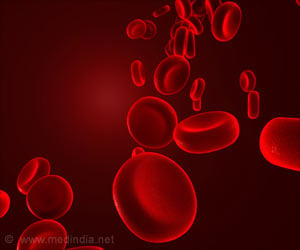Highlights:
- The U.S Food and Drug Administration has recently approved a new high-sensitivity version of the cardiac troponin test to be used in emergency rooms
- The current test is faster, safer and more effective
- The new test can exclude more patients who have not had an heart attack than previously
High-sensitivity Cardiac Troponin T (Hs-cTnT) Test
The new test abbreviated as hs-cTnT test assesses levels of cardiac troponin, a protein in heart muscle cells that are released into the bloodstream when the heart is damaged. Generally the amount of troponin released is directly proportional to the damage of the heart.Elevated troponin levels show up after a few hours of heart attack. Hence, doctors make the patients stay for a few hours for a subsequent troponin test or another test is done to confirm a heart attack.
An increased level after 6 hours, confirms the presence of a heart attack in most patients. An increased level after 12 hours, confirms a heart attack in almost everyone.
Troponin levels may remain high for 1 to 2 weeks after a heart attack.
"We did not miss any heart attack using this new test in this population," said lead author Rebecca Vigen, M.D., M.S.C.S., a cardiologist at the University of Texas Southwestern Medical Center. "The test also allowed us to determine faster that many patients who had symptoms of a heart attack were not having a heart attack than if we had relied on the traditional test."
About 536 study participants were admitted to an emergency room with heart attack symptoms, including chest pains and shortness of breath.
By the end of three hours, the new procedure ruled out heart attack in 83.8 percent of patients compared with 80.4 percent using the conventional test.
What is a Heart Attack?
Also known as myocardial infarction, when a heart attack occurs, there is a block in one of the coronary arteries or arteries of the heart, which reduces the blood flow going into the heart. As a result, a part of the heart muscle is deprived of oxygen.What a person feels when they suffer a heart attack –
Chest – Pain or discomfort in the center that feels like uncomfortable pressure, squeezing, fullness or pain, shortness of breath
Upper body – Pain or discomfort in the neck, shoulder, one or both arms, back jaw
Head – Lightheadedness, nausea or vomiting
"We anticipate that this procedure will allow many patients with chest pain to be given a 'yes' or 'no' diagnosis of whether they are having a heart attack faster," said Vigen, who hopes clinicians from other institutions will learn from these results.
References:
- More sensitive blood test diagnoses heart attacks faster - (https://newsroom.heart.org/news/more-sensitive-blood-test-diagnoses-heart-attacks-faster?preview=0f4f)
- Troponin test - (https://medlineplus.gov/ency/article/007452.htm)
- Warning Signs of a Heart Attack - (https://www.heart.org/en/health-topics/heart-attack/warning-signs-of-a-heart-attack)
Source-Medindia
















